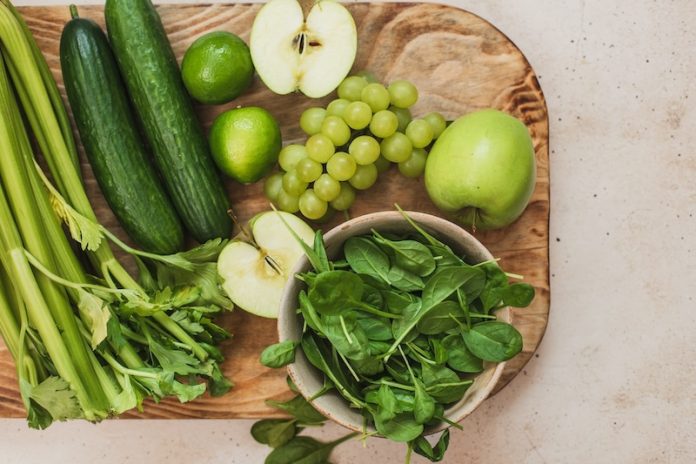
Inflammation is the body’s natural response to injury or infection, but chronic inflammation can lead to various health problems, including arthritis, heart disease, and certain cancers.
Recent research has highlighted the impact of diet on reducing inflammation. This review explores foods known for their anti-inflammatory properties, backed by scientific evidence.
Understanding Inflammation
Inflammation is part of the body’s immune response. While acute inflammation is beneficial for healing, chronic inflammation can be harmful and is linked to many chronic diseases.
Persistent, low-grade inflammation is a feature of various conditions like heart disease, diabetes, and autoimmune diseases. Diet plays a crucial role in managing and reducing this type of inflammation.
Anti-Inflammatory Foods
Leafy Greens: Vegetables like spinach, kale, and collard greens are high in antioxidants and polyphenols, compounds that reduce inflammation. A study in the “Journal of Epidemiology & Community Health” found a link between the consumption of green leafy vegetables and reduced inflammation markers.
Fatty Fish: Fish like salmon, mackerel, and sardines are rich in omega-3 fatty acids, known for their anti-inflammatory effects. The American Journal of Clinical Nutrition published research demonstrating the benefits of omega-3s in reducing inflammation.
Berries: Berries are packed with antioxidants and vitamins. A study in “Nutrients” showed that blueberries, strawberries, and blackberries have compounds that can significantly lower inflammatory markers.
Nuts and Seeds: Almonds, walnuts, chia seeds, and flaxseeds are high in healthy fats, fiber, and antioxidants. Research in the “Journal of the American College of Cardiology” highlighted the anti-inflammatory effects of nuts.
Olive Oil: Extra virgin olive oil contains oleocanthal, which has properties similar to anti-inflammatory drugs. The “European Journal of Pharmacology” reported its effectiveness in reducing inflammation.
Foods to Avoid
Processed Foods: High in trans fats, processed foods can increase inflammation. Reducing their intake is essential for managing inflammation.
Refined Carbohydrates: White bread and pastries can promote inflammation. Opting for whole grains is a healthier choice.
Sugar: Excessive sugar intake can trigger inflammatory responses. Limiting sugary foods and drinks is beneficial.
Incorporating Anti-Inflammatory Foods into Your Diet
Balanced Meals: Incorporate a variety of anti-inflammatory foods into each meal for a balanced approach to reducing inflammation.
Cooking Methods: Opt for healthier cooking methods like grilling, steaming, or baking, rather than frying.
Spices: Spices like turmeric and ginger are not only flavorful but also have strong anti-inflammatory properties.
Lifestyle Factors
Exercise: Regular physical activity can complement an anti-inflammatory diet in reducing inflammation.
Stress Management: Chronic stress can exacerbate inflammation. Techniques like yoga and meditation can help.
Conclusion: A Holistic Approach to Reducing Inflammation
Managing inflammation is not just about what you eat, but also how you live. A diet rich in anti-inflammatory foods, combined with regular exercise and stress management, can significantly reduce inflammation.
By making informed food choices and adopting a healthier lifestyle, it’s possible to alleviate the effects of chronic inflammation and improve overall well-being.
Follow us on Twitter for more articles about this topic.
Copyright © 2023 Scientific Diet. All rights reserved.





